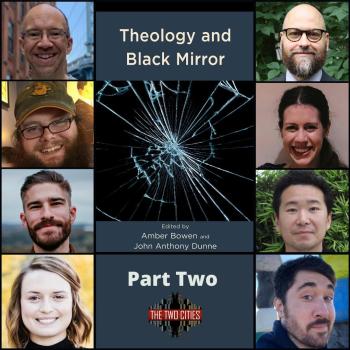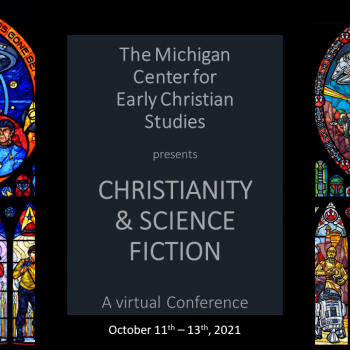You may have gathered that my post about Jesus’ exaltation as the early Christian gospel, with lots of links related to Christology, started out as an engagement with a particular post, then a series of posts on that blog, and then became a dump for links related to the theme of the blog post, which then languished for a long time because it had become so unwieldy. Well, here is another blog post with a similar history. Hopefully many of the links that WordPress helpfully turns into previews with excerpts will show up below as they are supposed to. If you find yourself having to copy and paste links as text, I apologize. But there was such a flurry of activity related to the Trinity over the past year that it was hard to keep up even with reading or skimming them all, never mind trying to engage with them. And so at this stage, I’ll share them, and if you read something on one of the blogs that I link to below that you’d be interested in me exploring in more detail, let me know and I’ll seek to do so!
I should perhaps start with the surprising news about how widespread Arianism is among modern-day Christians. And then let me note the quote from Thomas of Kempen that Graham Cheeseman shared: “Of what use is it to discourse learnedly on the Trinity if you lack humility and so displease the Trinity?”
I’d also like to highlight two posts about adoptionism in the New Testament, i.e. the idea that the divine came upon Jesus not at birth, but later, most commonly at his baptism. Andrew Perriman asked when the Word became flesh according to John, while Philip Jenkins blogged about Christmas and Epiphany (coming soon to churches near you). Jenkins writes (summarizing the reasoning of many ancient as well as more recent interpreters):
Jesus was not divine from birth, but rather divinity descended upon him at a specific moment, namely at his baptism in the Jordan. That fits reasonably with the interpretation we might get if we relied only on the gospels of Mark and John, where the baptism clearly marks some kind of explosive, transformative, moment in Jesus’s career. Of course, that reading of the Baptism is not the only possible interpretation, nor necessarily the best, but it does have an internal consistency.
See also Dunn on Jesus as kyrios, “Lord,” in the New Testament.
ASOR had an article on the making of monotheism. The blogging about Christology, monotheism, and worship on Andrew Perriman’s blog was not limited to what I highlighted in my last post, nor the one mention above. See his posts about Daniel’s Son of Man, every knee bowing in Philippians 2, Jesus as Alpha and Omega in Revelation, and “In the beginning was the Word” and Jesus being accused of “making himself God” in the Gospel of John. See also in particular his discussion of my work in connection with the saying, “Before Abraham was, I am.”
Roger Olson blogged about what it means to say “Jesus is God,” Weekend Fisher offered a Venn diagram, and Episcopal Cafe wrestled with the Trinity as heresy. Brian Small highlighted a monograph about divine Christology in Hebrews (where else?). Jonathan Robinson blogged about Michael Welker’s book. Bob Cornwall blogged about Christology and Christian engagement with other religions.
Meanwhile, elsewhere on blogs…
Ian Paul on explaining the Trinity in short words
The Trinitarian hymn “Holy Holy Holy”
https://trinities.org/blog/what-is-mere-christianity/
http://trinities.org/blog/podcast-229-buzzard-and-hurtado-on-god-and-jesus-part-2/
http://trinities.org/blog/podcast-230-the-failure-of-fashionable-antiunitarian-arguments/
http://trinities.org/blog/god-commands-worship-my-son/
http://trinities.org/blog/hays-cant-escape-tri-jes-ism/
http://trinities.org/blog/do-you-think-jesus-is-the-trinity/
Letter to a friend who is converting to Orthodoxy; the case against preexistence; and Hays’ Three Jesuses
http://trinities.org/blog/feedback-on-an-argument-that-the-new-testament-is-unitarian/
http://trinities.org/blog/do-christians-worship-three-gods/
https://trinities.org/blog/podcast-246-response-to-branson-part-4-the-shortcomings-of-monarchical-trinitarianism/
https://jesusmonotheism.com/ben-siras-incorporative-and-cosmic-messianism/
Finally, Zondervan had a blog post about the concept of hypostatic union, in which the importance of understanding this view of Jesus is emphasized. It seems to rather illustrate why this concept, couched and ultimately dependent on Greek philosophical terms and categories that few today can relate to much less understand, is a hindrance rather than a help for people thinking about Jesus in our day and age. Having had the Trinity come up in my Sunday school class as we discussed the Gospel of John, and having found myself needing to talk about Tertullian, where the term comes from, and whether it is ultimately a help or a hindrance to understanding the Gospel of John, I think that it is crucially important that Christian traditions which do not simply embrace ancient creeds to be open to critically examining this historic doctrine, and at the very least reformulating it, if not setting it aside in favor of one that better does justice to the New Testament evidence, and a better job of explaining the New Testament to people today.
What do you think?













